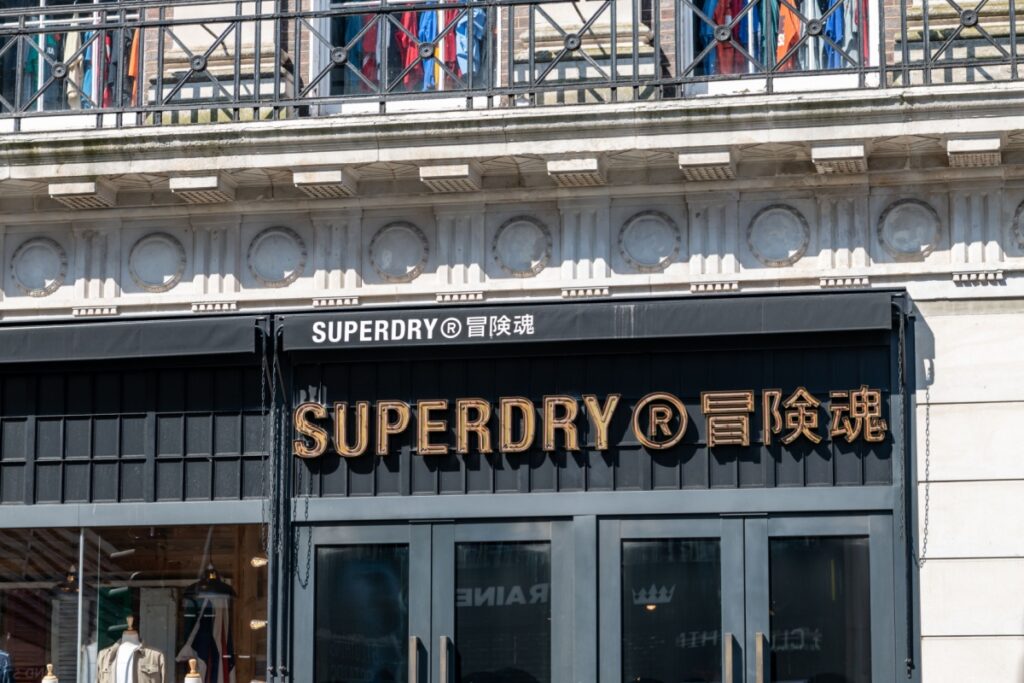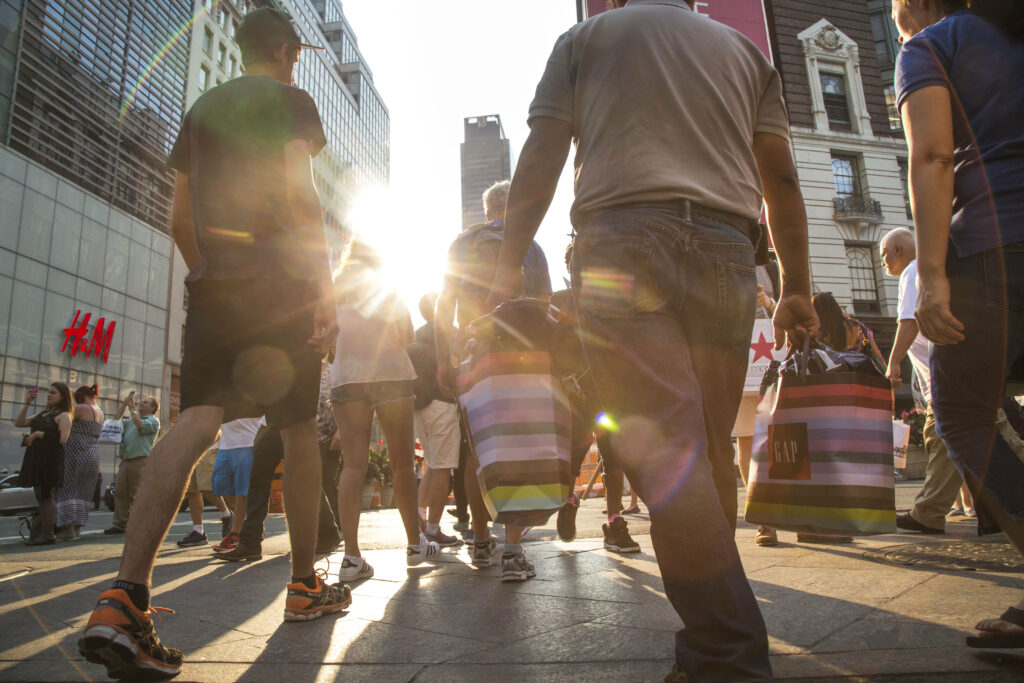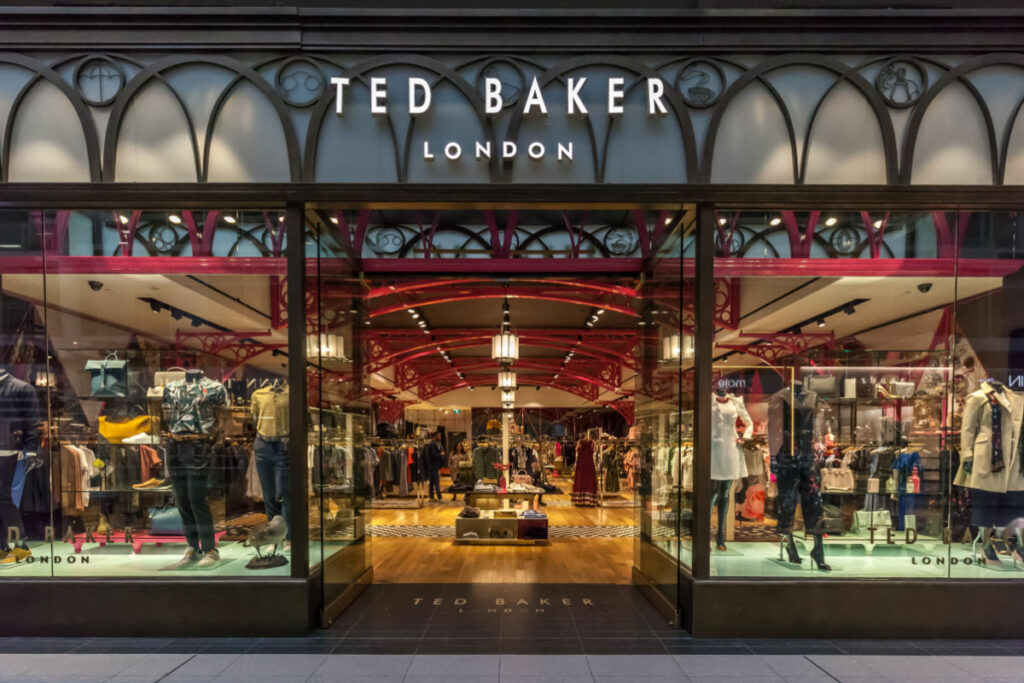It’s no secret that retail – along with countless industries – is feeling the heat of the coronavirus outbreak. Many have been forced to close stores in China as a result, while others have already warned on supply shortages.
With the outbreak largely concentrated in the major commerce hubs of mainland China and now Iran, Italy and South Korea, COVID-19 has already prompted major companies to slash upcoming revenue expectations.
Many retailers, particularly ones in the luxury sector have continuously warned on the negative affect the outbreak will have on business.
Forrester analyst Xiaofeng Wang told Retail Gazette that the global luxury sector was “heavily dependent” on the spending of Chinese shoppers. Industry experts estimated that Chinese consumers spent £79.62 billion on luxury in 2019, or one-third of global luxury retail sales.
British luxury retailer Burberry warned investors earlier this month that the outbreak was having a “material negative effect” on demand, while Michael Kors owner Capri Holdings warned it could result in a $100 million (£77 million) hit to revenue.

To add to woes, the FTSE 100 lost £44 billion last month after luxury retail groups saw their shares drop – and troubles have continued this week.
Travel has also become an issue, with the luxury sector depending on Chinese shoppers both at home and abroad. The lack of Chinese tourists at Bicester Village alone became a cause for concern after Chinese visitors reportedly dropped by around 85 per cent since the outbreak began, especially since British Airways extended its suspension of flights to mainland China.
“With less Asian consumers willing to travel, we are seeing significantly less sales for luxury brands – take the reduction in footfall at luxury outlets like Bicester Village as an example,” said Mark Allen, strategist at global design consultancy Fitch.
One of the biggest challenges that retailers face is imminent supply shortages, linked to uncertainty about when factories will resume production.
“The absolute speed and scale of this unpredictable coronavirus impact already have considerable ramifications to the supply chain industry globally,” Gravity Supply Chain chief executive Graham Parker said.
“Lockdowns enforced by the Chinese government in an attempt to halt the spread of the virus mean factories closed, and restricted movement is creating labour issues.
“Essential land, air, and maritime transportation routes have been severely restricted and are likely to create significant supply chain disruption on a global scale.”
Wunderman Thompson Commerce senior consultant Shalina Ganatra argued it was likely that European countries cannot produce items as cost effectively as China, and a change in supply chain will potentially lead to retailers with already low margins being forced to pass on their increased costs to consumers.
The BRC said that although the immediate impact is to Chinese supply chains, “the coronavirus presents a significant possible risk to British retailers”.
Meanwhile, European seaports have faced warnings that the shutting down of plants across China could mean suppression of the country’s trade with the continent by a fifth.

Greg Lawless, of Shore Capital, said shortages of goods could start appearing on shelves within the next six weeks. However, he argued that “clothing retailers are fine for now” because they will have enough stock to last until the outbreak blows over.
Furthermore, Hargreaves Lansdown head of investment analysis Emma Wall said consumer discretionary stocks in LVMH and Burberry have taken a hit while beauty conglomerate L’Oreal has seen share price volatility.
“All three firms rely on Asia for around 30 per cent of revenues,” she said.
“Sectors which are reliant on trade to distribute their products are at risk as and when borders are closed and sea tankers are grounded.”
Wall added that despite coronavirus continuing to unsettle markets, “it’s unlikely that the virus will have an ongoing impact on global markets and economic growth”.
In fact, many retailers have begun to adjust to the outbreak by introducing live-streaming during the major fashion weeks.
Within the past week, confirmed cases of coronavirus in Italy have leapt and caused Italian fashion house Giorgio Armani to cancel its Milan runway show and instead stream the event from an empty showroom for interested buyers.
Meanwhile, Gucci live-streamed its autumn/winter women’s collection catwalk show in Milan using Weibo – one of China’s biggest social media platforms – in a bid to keep buyers engaged.
Arguably, by stimulating demand for online shopping the outbreak has highlighted the broader need for traditional retailers to keep moving away from a reliance on bricks-and-mortar stores to a more omnichannel model. But while people are increasingly shopping online, ecommerce could also be temporarily hit. Logistic disruptions could affect deliveries, which is a near-term negative for Chinese ecommerce players.
Chinese retail giant Alibaba last week warned that virus-related disruptions may hit its revenue growth in the March quarter. Chief executive Daniel Zhang said the delay in employees returning to work was preventing merchants and logistic companies from resuming operations.
Ganatra argued that despite this, retailers were embracing technology – although consumers are unlikely to grasp tech in the same way when shopping for goods, particularly luxury goods. Instead, they’re likely to prioritise food and household items in a bid to stockpile in the event of a pandemic.
This means it’s not solely the luxury sector that’s taking a hit. Fashion retailers at the low and mid-end of the market are also affected as China continues to be a key source within their supply chain.
Just this week, Primark became the latest fashion retailer to issue a supply warning on some lines later in the year if factory delays in China were prolonged. Despite the threat, Primark, which has 500 suppliers in China, said it was “well stocked with cover for several months” and didn’t expect any “short-term impact” as a result of the outbreak.
On Tuesday though, it said it was considering relocating some manufacturing to non-Chinese factories as a result of coronavirus.
“In the short term, Primark, along with other retailers, will likely be seeking alternative countries to fill the manufacturing gap,” Ganatra said.

It has been over a month since the virus first began to hit the headlines, and with each update from the World Health Organisation, or news of the virus spreading to a new region, there is a market reaction.
While many retailers may have a strong reliance on Chinese manufacturers, many also have a lot of finished goods in their supply chains, which can theoretically weather at least the month’s worth of disruption that the industry has faced so far.
If the disruption extends beyond a month, it could still take a while before most consumers really feel the impact. However, retail deals in finished goods, so if stores can’t sell, then the impact would be immediate.
Even as they face mounting logistical pressures, retailers must strive to meet consumer expectations through proactive decision making and a willingness to make trade-offs elsewhere.
Leadership teams should strengthen their supply chains by applying lessons they have learned in recent weeks — and continue to learn during the uncertainty ahead.
Click here to sign up to Retail Gazette’s free daily email newsletter

















